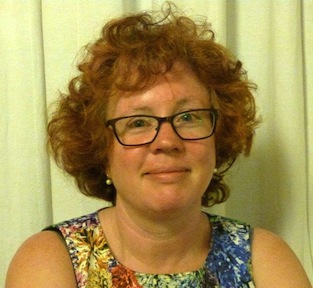Studying at the University of Verona
Here you can find information on the organisational aspects of the Programme, lecture timetables, learning activities and useful contact details for your time at the University, from enrolment to graduation.
Academic calendar
The academic calendar shows the deadlines and scheduled events that are relevant to students, teaching and technical-administrative staff of the University. Public holidays and University closures are also indicated. The academic year normally begins on 1 October each year and ends on 30 September of the following year.
Course calendar
The Academic Calendar sets out the degree programme lecture and exam timetables, as well as the relevant university closure dates..
| Period | From | To |
|---|---|---|
| Presentazione corsi di laurea | Oct 1, 2012 | Oct 1, 2012 |
| I semestre | Oct 2, 2012 | Jan 12, 2013 |
| II semestre | Feb 25, 2013 | May 31, 2013 |
| Session | From | To |
|---|---|---|
| Sessione esami invernale | Jan 14, 2013 | Feb 23, 2013 |
| Sessione esami estiva | Jun 3, 2013 | Jul 27, 2013 |
| Sessione esami autunnale | Sep 2, 2013 | Sep 30, 2013 |
| Session | From | To |
|---|---|---|
| Sessione lauree autunnale | Nov 22, 2012 | Nov 24, 2012 |
| Sessione lauree invernale | Mar 25, 2013 | Mar 27, 2013 |
| Sessione lauree estiva | Jul 10, 2013 | Jul 13, 2013 |
| Period | From | To |
|---|---|---|
| Festa di Ognissanti | Nov 1, 2012 | Nov 1, 2012 |
| Festa dell'Immacolata Concezione | Dec 8, 2012 | Dec 8, 2012 |
| Vacanze di Natale | Dec 24, 2012 | Jan 6, 2013 |
| Vacanze di Pasqua | Mar 29, 2013 | Apr 2, 2013 |
| Festa della Liberazione | Apr 25, 2013 | Apr 25, 2013 |
| Festa del Lavoro | May 1, 2013 | May 1, 2013 |
| Festa del Santo Patrono di Verona - San Zeno | May 21, 2013 | May 21, 2013 |
| Festa della Repubblica | Jun 2, 2013 | Jun 2, 2013 |
Exam calendar
Exam dates and rounds are managed by the relevant Foreign Languages and Literatures Teaching and Student Services Unit.
To view all the exam sessions available, please use the Exam dashboard on ESSE3.
If you forgot your login details or have problems logging in, please contact the relevant IT HelpDesk, or check the login details recovery web page.
Academic staff
 birgit.alber@univr.it
birgit.alber@univr.it
 lidia.carolgerones@univr.it
lidia.carolgerones@univr.it
 cinzia.delotto@univr.it
cinzia.delotto@univr.it
 angelopietro.desole@univr.it
angelopietro.desole@univr.it

Locher Elmar
 elmar.locher@univr.it
elmar.locher@univr.it
 +39 045802 8311
+39 045802 8311
 silvia.monti@univr.it
silvia.monti@univr.it

Zaccarello Michelangelo
 michelangelo.zaccarello@univr.it
michelangelo.zaccarello@univr.it
 +39 045 802 8330
+39 045 802 8330
Study Plan
The Study Plan includes all modules, teaching and learning activities that each student will need to undertake during their time at the University.
Please select your Study Plan based on your enrollment year.
1° Year
| Modules | Credits | TAF | SSD |
|---|
Information Technology
2° Year activated in the A.Y. 2013/2014
| Modules | Credits | TAF | SSD |
|---|
3° Year activated in the A.Y. 2014/2015
| Modules | Credits | TAF | SSD |
|---|
| Modules | Credits | TAF | SSD |
|---|
Information Technology
| Modules | Credits | TAF | SSD |
|---|
| Modules | Credits | TAF | SSD |
|---|
| Modules | Credits | TAF | SSD |
|---|
Legend | Type of training activity (TTA)
TAF (Type of Educational Activity) All courses and activities are classified into different types of educational activities, indicated by a letter.
Germanic Philology (2014/2015)
Teaching code
4S00877
Teacher
Coordinator
Credits
6
Language
Italian
Scientific Disciplinary Sector (SSD)
L-FIL-LET/15 - GERMANIC PHILOLOGY
Period
I semestre dal Oct 1, 2014 al Jan 10, 2015.
Learning outcomes
Manuscript books and narrative traditions in Britain and Germany:
‘Auchinleck Manuscript’ and ‘Ambraser Heldenbuch’
The course aims at shedding light on the emergence of vernacular books with narrative contents in Britain and Germany, sketching this history on the instance of two luxury manuscripts, the first, the Auchinleck Manuscript, produced around 1340, most likely in London for an unidentified purchaser (a rich merchant or a noble family involved in crusading) [point 2.a in the Bibliography]; the other, the Ambraser Heldenbuch, produced in Tirol at the opening of the 16th century, on commission for the emperor Maximilian I [point 2.b in the Bibliography]: both manuscripts are mainly concerned with chivalric themes and are the unique witnesses of remarkable literary works, as the Middle-English Sir Tristrem (published for the first time by Walter Scott in 1804) and the Middle-High-German epic of Kudrun.
The inquiry will be opened by discussing some preliminary issues: Firstly, a short overview of the history and common features of the languages included in the Germanic group [point 1.a in the Bibliography], and of the growth of literacy and written traditions, from the early Middle Age to the modern epoch [point 1.b in the Bibliography]; secondly an outline of the trends within medieval text publishing (touching the topics of textual criticism, paleography, codicology, book-production history, library history) [point 1.b in the Bibliography]. The selected manuscript instances [point 2.a and 2.b in the Bibliography] are devoted to illustrate the interplay between literary genres and audience; a specific section of the course will consider the introduction of writing and the resulting book production and diffusion from the point of view of the communication science, touching some aspects concerning the digital editing .
Program
Bibliography and sitography
1. Introduction
1.a. Historical linguistics
- CIPOLLA, Adele, Lezioni di Filologia germanica: Linguistica anglisti/tedeschisti: Schede per i corsi di Filologia germanica delle lauree triennali (pdf: elearning)
- LEONARDI, Simona, and Elda MORLICCHIO, La filologia germanica e le lingue moderne, Bologna: Il mulino 2009 (cap. 1.1.1-4., 1.3.1-2.; cap. 2; cap. 8. 1.1.-3.; 8.2.1.-3)
- MOLINARI, Maria Vittoria, La filologia germanica, Bologna: Zanichelli (pp. 1-23, 91-145)
1.b. Textual criticism, paleography, codicology; history of the book and library; modern literary genres in manuscripts
- BEIN, Thomas, Introduzione alla critica dei testi tedeschi medievali, Pisa: ETS (pp. 13-27)
- CIPOLLA, Adele, Produzione, conservazione e stampe moderne del libro manoscritto medievale in Inghilterra e Germania: Schede per il corso di Editoria 2013-14 (pdf: elearning)
- LUISELLI FADDA, Anna Maria, Tradizioni manoscritte e critica del testo nel Medioevo germanico, Roma-Bari, Laterza (pp. 21-83, 113-179, 243-253)
2. History of the manuscript book and of its production
2. a. Auchinleck Manuscript
- The Auchinleck Manuscript, eds Burnley, David and Alison Wiggins < http://auchinleck.nls.uk/>
and either
- CROFTS, Thomas H., and Robert ROUSE, Middle English popular romance and national identity, in RADULESCU, Raluca, and Cory James RUSHTON, eds, A companion to Medieval Popular Romance, Cambridge, Brewer 2009, pp. 79-95
or
- TAYLOR, Andrew, ‘Manual to miscellany: stages in the commercial copying of vernacular literature in England’, Yearbook of English Studies 33 (2003), pp. 1-17
2. b. Ambraser Heldenbuch
- Handschriftencensus. Eine Bestandsaufnahme der handschriftlichen Überlieferung deutschsprachiger Texte des Mittelalters:
Wien, Österr. Nationalbibl., Cod. Ser. nova 2663
http://www.handschriftencensus.de/3766
and either
- HAUB, Horst, Ambraser Heldenbuch und Kaiser Maximilian I.: Zu Konzeption und Anfang der Handschrift mit dem Frauenehre-Fragment des Stricker, München: GRIN-Verlag, 2010, pp. 1-23.
or
- JANOTA, Johannes, ‘Ambraser Heldenbuch’, in: Die deutsche Literature des Mittelaters. Verfasserlexikon, Berlin-New York, de Gruyter, Bd. 1 (1978), Sp. 323-327.
Examination Methods
Oral exam; midterm test on point 1 of the bibliography.
Suggestions for further readings and other bibliographical materials will be published on the e-learning page
Type D and Type F activities
To discover all the teaching activities accredited by the foreign teaching college click here
Career prospects
Module/Programme news
News for students
There you will find information, resources and services useful during your time at the University (Student’s exam record, your study plan on ESSE3, Distance Learning courses, university email account, office forms, administrative procedures, etc.). You can log into MyUnivr with your GIA login details: only in this way will you be able to receive notification of all the notices from your teachers and your secretariat via email and soon also via the Univr app.
Student login and resources
Assegnazione tutore
Attività accreditate D/F
Calendario didattico dettagliato
Cambio lingua curriculare
Competenze informatiche
Competenze linguistiche (prima e seconda lingua)
Competenze linguistiche in triennale (terza lingua CFU F)
Compilazione del piano didattico
Corso di Lingua portoghese
Erasmus+ e altre esperienze all'estero
Linguistic training CLA
Graduation
List of theses and work experience proposals
| Stage | Research area |
|---|---|
| PROGETTO MAMBRINO Stage per bibliografia | Various topics |
Stage e tirocini
Nel piano didattico della laurea triennale in Lingue e culture per l’editoria (L11 ED) è previsto un tirocinio/stage obbligatorio (CFU 6).
Le attività di stage sono finalizzate a far acquisire allo studente una conoscenza diretta in settori di particolare interesse per l’inserimento nel mondo del lavoro e per l’acquisizione di abilità professionali specifiche.
Le attività di stage sono svolte sotto la diretta responsabilità di un singolo docente presso studi professionali, enti della pubblica amministrazione, aziende accreditate dall’Ateneo veronese.
I crediti maturati in seguito ad attività di stage saranno attribuiti secondo quanto disposto nel dettaglio dal “Regolamento d’Ateneo per il riconoscimento dei crediti maturati negli stage universitari” vigente.
- Tutte le informazioni in merito agli stage per futuri studenti sono disponibili alla pagina Stage e tirocini.
- Tutte le informazioni in merito agli stage per studenti iscritti sono pubblicate in MyUnivr - come fare per - stage e tirocini.
- Tutte le informazioni in merito agli stage per le aziende sono disponili alla pagina Stage e tirocini per azienze.
Ulteriori informazioni al seguente link https://www.univr.it/it/i-nostri-servizi/gestione-carriere-studenti-lingue-e-letterature-straniere/stage-e-tirocini-lingue-e-letterature-straniere





























